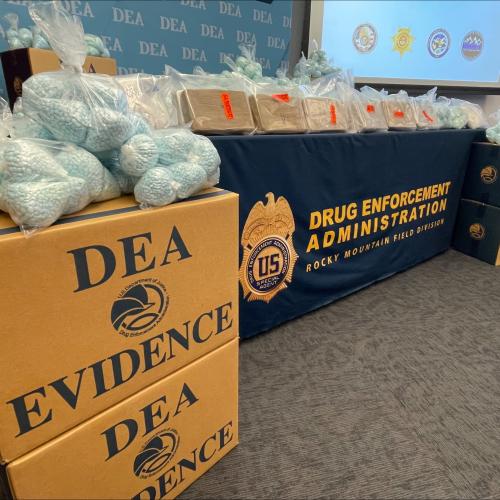Medical device company Aesculap Implant Systems LLC (Aesculap), based in Center Valley, Pennsylvania, has agreed to pay $38.5 million to resolve allegations under the False Claims Act that the company sold knee replacement devices that it knew would fail prematurely at a higher than acceptable rate, resulting in false claims to Medicare and Medicaid. The settlement further resolves allegations that the company paid unlawful remuneration to a physician to induce him to use the knee implants. Additionally, Aesculap agreed to a non-prosecution agreement with the United States in connection with its distribution of two medical devices without the required clearance from the U.S. Food and Drug Administration (FDA).
“Medical device failures — and their potential to harm patients — are of paramount concern to the Department of Justice,” said Assistant Attorney General Brett A. Shumate of the Justice Department’s Civil Division. “The Department will hold accountable medical device companies that knowingly sell products prone to failure that present risks to patients and waste taxpayer dollars.”
“Doctors who implant medical devices need complete and accurate information about those devices to ensure they choose the best and safest options for their patients,” said U.S. Attorney David Metcalf for the Eastern District of Pennsylvania. “A company that knows its product has a propensity to prematurely fail must not mislead doctors or government regulators or conceal material information about those known issues. Medicare and other federal programs should not be required to pay charges for devices that are unduly risky, and that may require painful and expensive surgeries to fix.”
“Transparency in medical device marketing is essential to safeguarding patient care,” said Deputy Inspector General for Investigations Christian J. Schrank of the U.S. Department of Health and Human Services, Office of Inspector General (HHS-OIG). “Undermining this process to increase profits is a serious violation of federal law that flouts the health and safety of patients. HHS-OIG will continue to work with our law enforcement partners to uncover and dismantle illegal arrangements that exploit the Medicare system for financial gain at the expense of patients.”
“Certain medical devices require FDA notification and clearance before distribution to the public,” said Acting Special Agent in Charge Ronald Dawkins of the FDA Metro Washington Field Office. “Distributing such medical devices without FDA clearance and in violation of the Federal Food, Drug, and Cosmetic Act can put patients at risk. The FDA’s Office of Criminal Investigations (OCI) worked with the Justice Department and HHS-OIG to ensure a just resolution, and we commend the exceptional work done by the team.”
The civil settlement announced today resolves allegations that, from July 30, 2010, to June 17, 2023, Aesculap sold the VEGA System® Knee System, a line of prosthetic implants used in knee replacement surgeries, while knowing that it would fail prematurely at a higher than acceptable rate and, therefore, was not reasonable and necessary for use during knee replacement surgeries. In such surgeries, physicians remove arthritic bone in the knee and implant a device, which is fixed in place with bone cement. The United States alleged that the Vega was prone to becoming loose from patient’s bone prematurely, often shortly after surgery. Patients experiencing loosening could have pain, instability, and difficulty walking, and such patients required a revision surgery to remove and replace the Vega implant. The United States alleged that Aesculap knew shortly after the Vega was released in the United States that bone cement did not properly adhere to the implant. Despite this knowledge, Aesculap sold the Vega to physicians and hospitals in the United States without disclosing this known problem with the device. The United States also alleged that Aesculap failed to take steps to record, track, or report adverse events for the Vega and did not take adequate steps to remediate the problem. As of April 2024, Aesculap stopped selling all of its knee replacement devices, including the Vega, in the United States.
The settlement also resolves allegations that Aesculap knowingly and willfully made unlawful payments to an orthopedic surgeon located in Georgia who experienced problems with the Vega with the intent to induce him to use and recommend the Vega Knee System, in violation of the Anti-Kickback Statute, 42 U.S.C. 1320a-7b(b). This remuneration took the form of consulting payments, free international travel, and entertainment, among other things.
In addition to the civil settlement, Aesculap agreed to enter into a non-prosecution agreement related to the introduction of two medical devices into interstate commerce in violation of the Food, Drug and Cosmetic Act (FDCA) from March 2017 until August 2017. The two devices at issue are the ELAN-4 Air Drill, a high-speed surgical drill used for bone cutting, sawing, and drilling, and the JS Series SterilContainer S2, a reusable sterilization container for medical instruments. According to the non-prosecution agreement, Aesculap tasked an employee with shepherding both medical devices through the FDA clearance process, but the employee never submitted any documentation to FDA. He then forged multiple documents to reflect both devices were cleared by FDA to be marketed in the United States when FDA had not done so resulting in the illegal introduction of both devices into interstate commerce. The employee previously pleaded guilty to violating the FDCA and was sentenced to prison.
The civil settlement includes the resolution of claims brought under the qui tam or whistleblower provisions of the False Claims Act by John Marien and Michael McGee, who served as third-party distributors for Aesculap. Under those provisions, private parties can file an action on behalf of the United States and receive a portion of any recovery. The qui tam case is captioned United States ex rel. Marien & McGee v. Aesculap Inc., et al., No. 5:19-cv-1618 (E.D. Pa.). Marien and McGee will receive a share totaling $4,475,000 in connection with the settlement.
The resolution obtained in this matter was the result of a coordinated effort between the Justice Department’s Civil Division, Commercial Litigation Branch, Fraud Section; the Civil Division’s Enforcement and Affirmative Litigation Branch; and the U.S. Attorney’s Office for the Eastern District of Pennsylvania with assistance from HHS-OIG and FDA’s Office of the Chief Counsel and FDA-OCI.
The investigation and resolution of this matter illustrates the government’s emphasis on combating healthcare fraud. One of the most powerful tools in this effort is the False Claims Act. Tips and complaints from all sources about potential fraud, waste, abuse, and mismanagement, can be reported to HHS at 800-HHS-TIPS (800-447-8477).
The civil matter was handled by Senior Trial Counsel Nicholas C. Perros of the Civil Division’s Commercial Litigation Branch, Fraud Section and Assistant U.S. Attorneys Charlene K. Fullmer and Erin E. Lindgren of the Eastern District of Pennsylvania.
The criminal matter was handled by Trial Attorneys Max J. Goldman and Bryson N. Gillard of the Enforcement and Affirmative Litigation Branch.
Except for the facts that Aesculap admitted as part of the non-prosecution agreement, the claims resolved by the settlement are allegations only and there has been no determination of liability.






